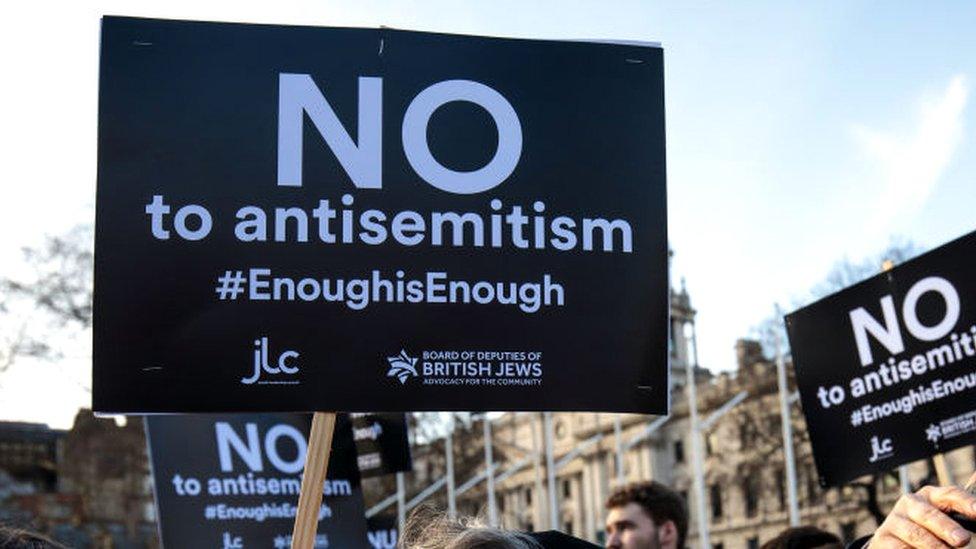Jeremy Corbyn suspension: Mark Drakeford refuses to comment
- Published
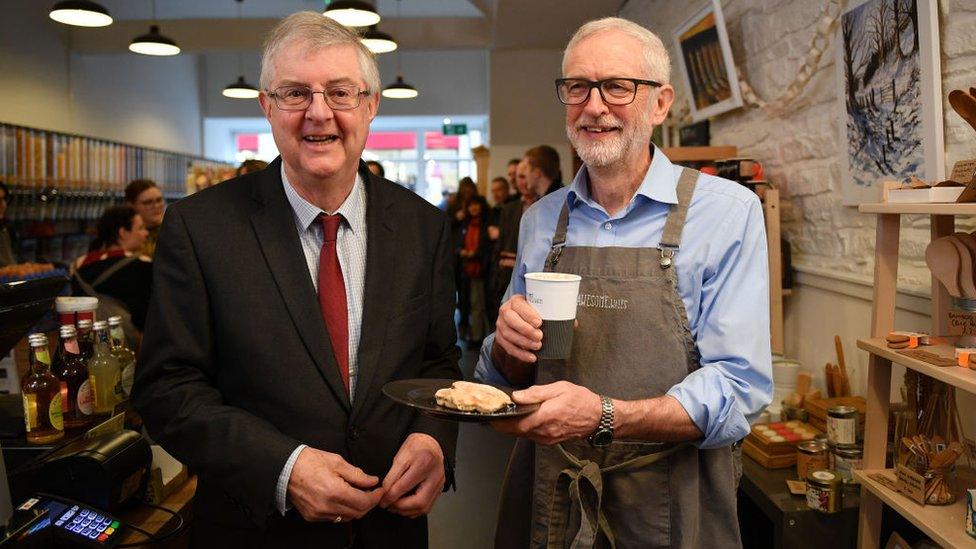
Mark Drakeford and Jeremy Corbyn in Barry during the general election campaign
Wales' first minister has refused to comment on the suspension of former Labour leader Jeremy Corbyn.
Mark Drakeford's stance comes after shadow Welsh secretary Nia Griffith said the move was "absolutely right".
A report found Labour responsible for "unlawful" discrimination during Mr Corbyn's leadership.
The former leader was suspended after saying the scale of anti-Semitism within Labour had been "dramatically overstated" by opponents.
Welsh Conservative leader Paul Davies said Mr Drakeford, one of Mr Corbyn's earliest supporters in 2015, "needs to confirm whether he supports Sir Keir Starmer in suspending Corbyn or if he backs his political idol".
Meanwhile, Plaid Cymru is due to conduct a review to ensure it has a zero-tolerance approach to anti-Semitism, with all candidates due to receive training.
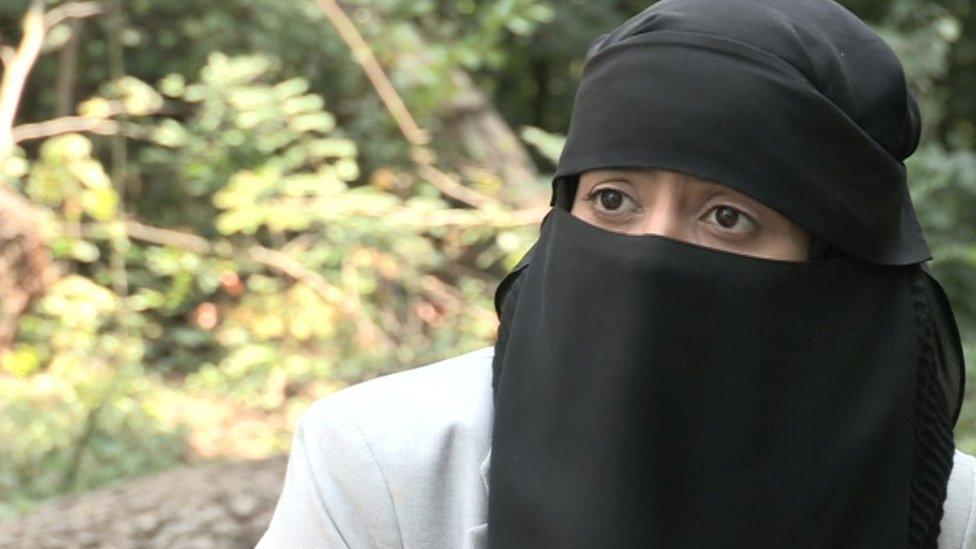
Sahar Al-Faifi is standing in the selection for the Plaid Cymru South Wales Central list
It comes after no action was taken following a party investigation into an activist accused of sending an anti-Semitic tweet.
The Board of Deputies of British Jews had said the decision not to suspend Sahar Al-Faifi sent a message that "anti-Semitism is tolerated in Plaid Cymru".
Plaid leader Adam Price said Labour's report was a "watershed moment", with anti-Semitism a "rising tide" and "nobody is immune".
"I can't involve myself for the very good reasons set out in the EHRC report in individual disciplinary cases, but it is my responsibility to ensure our culture, our structures, our processes do actually fulfil a zero-tolerance approach to anti-Semitism and any other form of religious prejudice," he said.
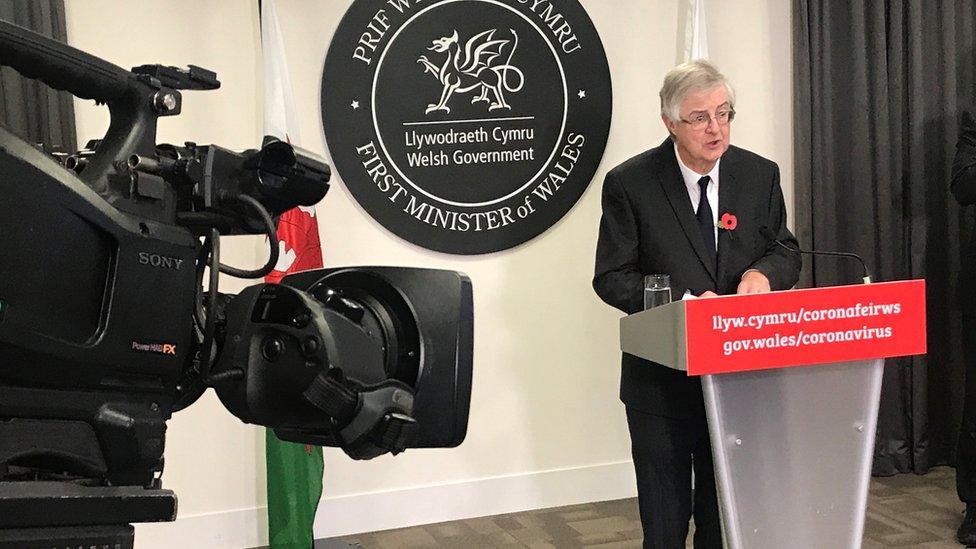
First Minister Mark Drakeford, a long time supported of Mr Corbyn, says he will not comment on his suspension from the Labour Party
Speaking at today's Welsh Government press briefing, Mr Drakeford said anti-Semitism "has no place at all in the Labour Party or in Welsh society," but added: "I'm not going to answer questions in relation to individuals."
"Anti-Semitism is a stain on any society and it has been a stain on the reputation of the Labour Party," he added.
Asked whether he regretted, in hindsight, supporting Mr Corbyn, he replied: "On page 49 the report criticises the previous leadership for interfering or attempting to influence formal procedures and it says it is not legitimate for the leadership to influence formal complaints procedures.
"There is a formal process in train and I am not going to comment on it because the report, I have welcomed expressly tells me not to."
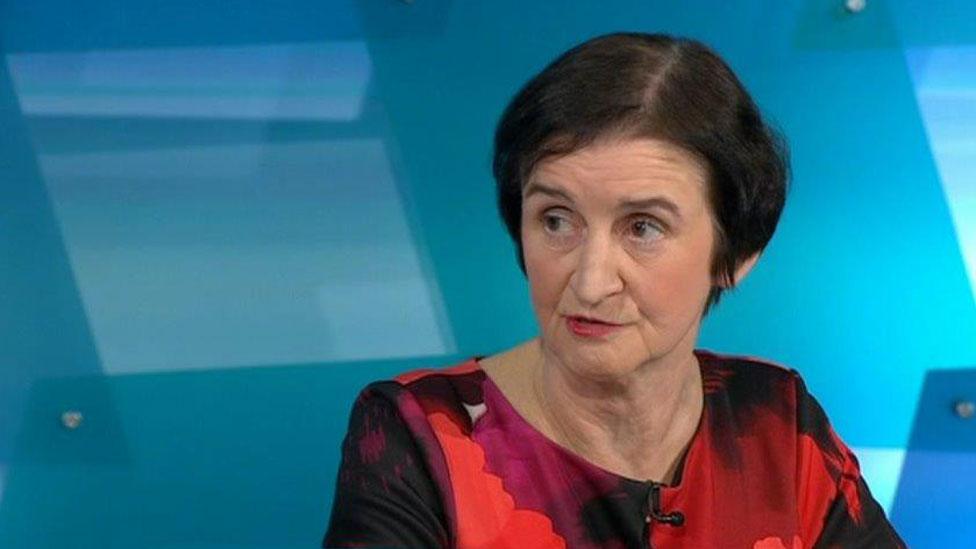
Nia Griffith said there can be a way back for the former Labour leader "if that's what he chooses"
Ms Griffith said Mr Corbyn "was asked to rethink the words that he used and he decided not to".
Welsh Labour Grassroots, a group that was very supportive of Mr Corbyn's leadership, tweeted that it stood "shoulder-to-shoulder" with him and described him as a "lifelong anti-racist campaigner".
Asked on BBC Radio Wales Breakfast whether there was any way back for Mr Corbyn, Ms Griffith said: "Absolutely, there's a proper process. I'm sure that there can be a way back if that's what he chooses."
The EHRC report found Labour responsible for three breaches of the Equality Act:
Political interference in anti-Semitism complaints
Failure to provide adequate training to those handling anti-Semitism complaints
Harassment, including the use of anti-Semitic tropes and suggesting that complaints of anti-Semitism were fake or smears
The EHRC found evidence of 23 instances of "inappropriate involvement" by Mr Corbyn's office.
Kier Starmer said he wants to "move" the party on
Sir Keir Starmer, who became Labour leader in April, has defended suspending Mr Corbyn after he said the problem of anti-Semitism within the party had been "dramatically overstated for political reasons by our opponents inside and outside the party".
Mr Corbyn called the move "political" and promised to "strongly contest" it.
Jeremy Corbyn: "I'll be appealing to the party, and those that have made this decision, to kindly think again"
But Ms Griffith added: "This is a report, which has been very upsetting, very shocking, particularly to us as a party who have championed equality and human rights, to find ourselves the subject of an investigation and the findings, of course, as dreadful as they are."
One of the ex-leader's most powerful allies, general secretary of the Unite union Len McCluskey, said the suspension risks "chaos" and could cost the party the next election.
Ms Griffith responded by saying the union leader "has always had his own views... but I do think that the majority of our members want to get things right, they do want us to be in the right place on this".
Asked whether she and Sir Keir regretted serving in Mr Corbyn's shadow cabinet during his time as leader, the Llanelli MP said she did not.
- Published30 October 2020

- Published29 October 2020

- Published19 February 2019
